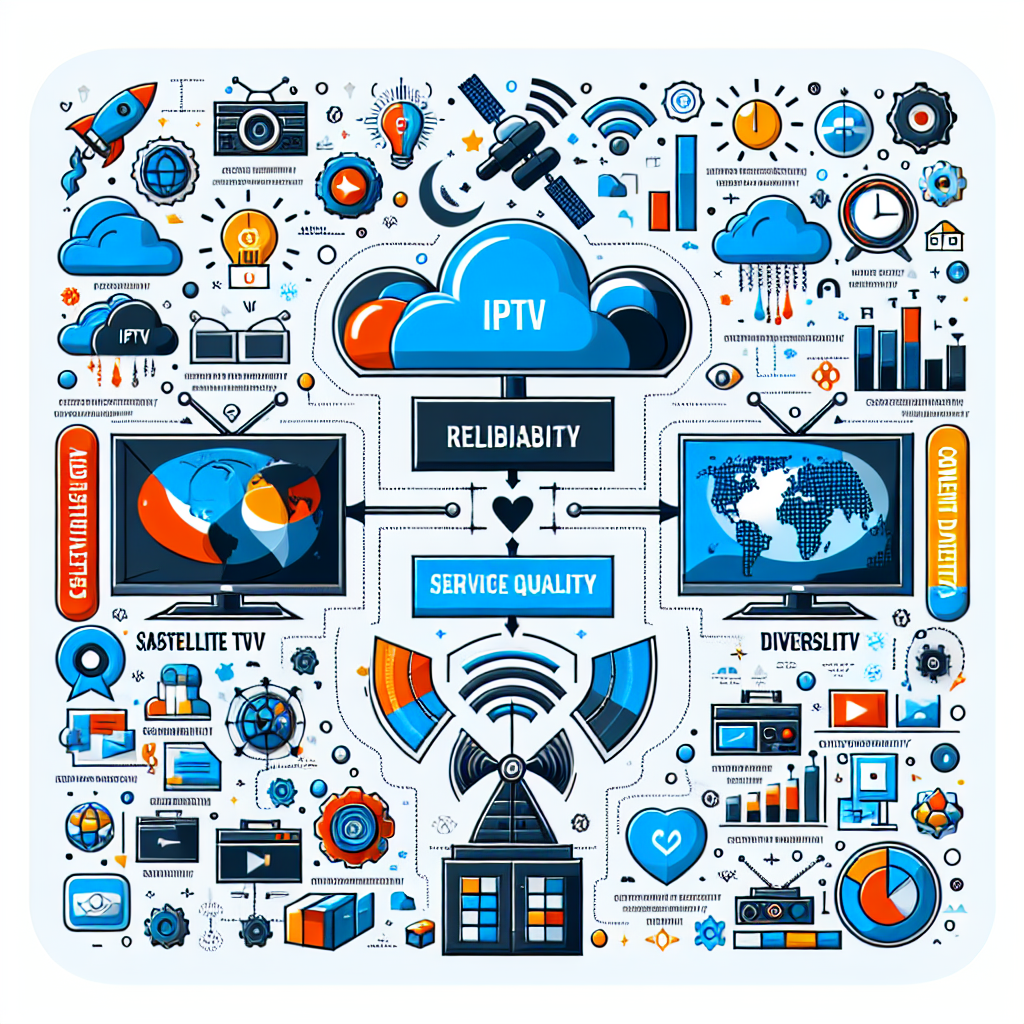In the dynamic world of television services, choosing the right provider is crucial for an uninterrupted and satisfying viewing experience. With technology advancing rapidly, two of the most popular choices are IPTV (Internet Protocol Television) and Satellite TV. Both offer unique advantages, but which one stands out as the more reliable option? In this comprehensive comparison, we dive into the nuances of IPTV and Satellite TV to help you make an informed decision.
Understanding IPTV and Satellite TV
IPTV uses the internet to deliver television content. This technology allows users to stream media continuously, offering a more customizable viewing experience. Unlike traditional methods, IPTV can provide content on-demand, making it a flexible option for modern viewers. One of the best providers in Europe is TiviBridge, known for its reliable service and extensive channel lineup.
Another top alternative IPTV service is TiviPlanet, which also offers a robust selection of channels and features.
Satellite TV, on the other hand, transmits channels directly from satellites orbiting the Earth. It’s a tried and tested method, offering a broad range of channels, even in remote areas where internet access might be limited.
Reliability of IPTV
When discussing reliability, IPTV’s reliance on internet connectivity is both a strength and a potential weakness. A stable high-speed internet connection is essential for seamless streaming. In urban areas, where internet infrastructure is robust, IPTV can offer superior reliability and quality. However, in areas with poor connectivity, users may experience buffering or service interruptions.
Moreover, IPTV services like TiviBridge are known for offering a wide array of international channels, which are particularly appealing in multicultural regions like Germany and the Netherlands.
Reliability of Satellite TV
Satellite TV is less dependent on local infrastructure. Its reliability thrives in rural areas where internet service might be insufficient. However, satellite signals can be affected by weather conditions such as storms or heavy rain, potentially leading to service disruptions.
Quality of Service
IPTV generally offers a higher quality of service in terms of video resolution and sound quality, provided the internet connection is fast and stable. Satellite TV, while consistent in delivering service, might not always match the HD or 4K quality available through IPTV.
Content and Channel Variety
IPTV often provides more flexibility in terms of content variety. With options like on-demand movies and shows, catch-up TV, and the ability to pause and rewind live TV, IPTV offers a modern viewing experience. Satellite TV, while offering numerous channels, may not provide the same level of interactivity.
Cost Considerations
IPTV services are typically more cost-effective, offering various subscription plans tailored to different viewing needs. Satellite TV, while initially more expensive due to equipment and installation costs, can be more economical in the long run for those in areas with limited internet access.
Environmental Impact
IPTV is generally more environmentally friendly as it does not require physical infrastructure like satellite dishes. This can be a consideration for users looking to minimize their environmental footprint.
Conclusion
Ultimately, the choice between IPTV and Satellite TV depends on several factors, including your location, internet connectivity, and viewing preferences. For urban dwellers with access to high-speed internet, IPTV providers like TiviBridge and TiviPlanet offer a compelling combination of flexibility, quality, and cost savings. For those in remote areas, Satellite TV may still be the go-to option for its availability and reliability.
Explore the best IPTV services available in your region to enhance your television experience today.




